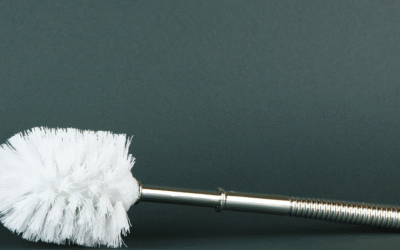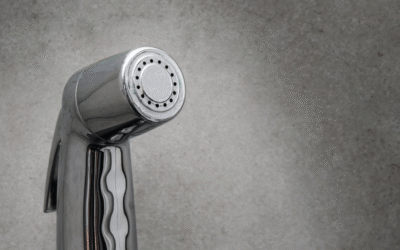Choosing the best food for a ferret is crucial for its health and vitality. Ferrets are obligate carnivores, meaning their diet should be rich in meat-based proteins and fats. Providing the right nutrition not only ensures they maintain a healthy weight but also keeps their coat shiny and their energy levels high.
Navigating the myriad of options available can be overwhelming for any pet owner. From commercial ferret kibble to raw diets, understanding what your furry friend needs can make all the difference. This guide will delve into the top choices for ferret food, helping you make an informed decision that supports your pet’s well-being.
Top Amazon Sellers
Key Takeaways
- Understand Ferret Nutritional Needs: Ferrets are obligate carnivores needing diets high in meat-based proteins and fats while avoiding carbohydrates and fillers such as grains.
- Types of Ferret Food: Key options include commercial kibble, raw diets, and freeze-dried or dehydrated food, each offering distinct benefits and requirements for ferret health.
- Reading Food Labels: Prioritise foods with high-quality animal proteins and essential fats. Avoid products with high carbohydrate content, harmful additives, or non-meat fillers.
- Common Feeding Mistakes: Avoid fruits, vegetables, dairy, and sugary treats. Monitor food intake to prevent overfeeding and obesity.
- Feeding Tips: Feed ferrets multiple times daily due to their high metabolism and use enrichment feeding strategies to promote natural foraging behaviours.
Best Ferret Food Overview
Ferrets thrive on a diet rich in meat-based proteins and fats. Their high metabolic rate requires food that’s both nutritious and calorically dense to maintain their energy levels. Choosing the best ferret food involves evaluating the protein content, with a preference for animal-derived sources over plant-based ones. Essential fats should complement the proteins to prevent diet-related health issues.
An optimal ferret diet contains minimal carbohydrates, as their bodies aren’t designed to process them efficiently. Always check ingredient lists for fillers and grains, which can compromise their digestive health. By prioritising high-quality proteins and fats, owners ensure their ferrets remain healthy and active.
Nutritional Needs of Ferrets
Ferrets require specific nutrients to thrive, given their unique dietary requirements. Understanding these needs is essential for choosing the best ferret food.
Understanding Obligate Carnivores
Ferrets are obligate carnivores. They need a diet high in meat-based proteins and fats, lacking essential plant-based enzymes. This means their diet must prioritise animal-derived nutrients.
Essential Nutrients for Ferrets
Key nutrients include high-quality animal proteins and essential fats. These support their high energy levels and metabolic rate. Carbohydrates are unnecessary and often harmful, so they must avoid foods with fillers and grains.
Types of Ferret Food
A variety of ferret food types cater to different nutritional needs and preferences. Key options include commercial kibble, raw diets, and freeze-dried or dehydrated food.
Commercial Kibble
Commercial kibble offers convenience and balanced nutrition when explicitly formulated for ferrets. It combines high-quality protein and fats essential for ferret health while ensuring minimal carbohydrates.
Raw Diet Options
Raw diet options mimic a ferret’s natural prey diet, providing high protein and fat content without grains or fillers. These diets need precise nutrient balance and safe handling to prevent bacterial contamination.
Freeze-Dried and Dehydrated Food
Freeze-dried and dehydrated food preserve the nutritional benefits of raw diets while offering longer shelf life. They provide high protein and fat content and can be rehydrated for easier consumption.
What to Look for in Ferret Food
Choosing the right food is crucial for a ferret’s health. Consider the following key factors:
Ingredients to Include
Animal-based proteins such as chicken and turkey, essential fatty acids, and taurine support ferrets’ high-energy needs. High-quality meat ensures optimal health and vitality, making these top choices for the best ferret food.
Ingredients to Avoid
Avoid foods with grains, fillers, and high carbohydrate content, as ferrets can’t efficiently digest these. Ingredients like corn and soy may cause digestive issues and should be excluded from their diet.
Reading Food Labels
Examine food labels for protein and fat content, prioritising animal-based sources and minimal carbohydrates. Ensure no harmful additives are present. This vigilance guarantees the best ferret food for your pet’s wellbeing.
Comparing Top Ferret Foods
The quality of ferret food significantly impacts their health and vitality. It’s crucial to compare the main types of ferret food, focusing on nutritional content.
Dry Kibble Comparison
Dry kibble offers convenience and balanced nutrition for ferrets when specifically formulated. It’s important to choose kibble with animal-based proteins and fats while avoiding high carbohydrate content.
Raw Diet Comparison
Raw diets can closely mimic a ferret’s natural prey diet, supplying high protein and fat without grains. However, raw diets require careful nutrient balance and safe handling to prevent health risks.
Specialty Foods
Specialty foods for ferrets include freeze-dried and dehydrated options. These types provide the benefits of a raw diet with longer shelf life, offering a high-protein, high-fat diet while being convenient to store and prepare.
Common Feeding Mistakes
Feeding ferrets involves careful consideration to prevent common mistakes that could harm their health. Avoiding certain errors ensures they receive the best nutrition possible.
Foods to Avoid
Certain foods can harm ferrets. They should avoid fruits, vegetables, dairy products, and sugary treats, as these aren’t part of their natural carnivorous diet. Ferrets can’t process high carbohydrates effectively, leading to digestive issues and other health problems.
Overfeeding and Obesity
Overfeeding ferrets can lead to obesity, impacting their overall health. Monitor their daily food intake, adjusting based on activity levels and age. Too much food can result in lethargy and decreased quality of life, stressing the importance of a balanced diet.
Feeding and Care Tips
Providing appropriate care for ferrets involves understanding their dietary needs and feeding habits to maintain their health and vitality.
How Often to Feed
Feed ferrets multiple times daily due to their fast metabolism. Offer consistent meals to balance energy levels throughout the day. Younger ferrets and active adults need more frequent feedings compared to older, less active ones, ensuring adequate nutritional intake and preventing lethargy.
Making Mealtime Enjoyable
Enrich mealtime by creating a stimulating environment. Scatter food or use puzzle feeders to encourage natural foraging behaviours. This not only mimics their wild instincts but also prevents boredom, promoting both mental and physical health. Always provide fresh water and monitor their food intake to ensure they consume the best ferret food.
Conclusion and Top Picks
Choosing the best food for ferrets is crucial for their health and vitality. Understanding their unique dietary needs as obligate carnivores ensures they receive the right balance of high-quality animal proteins and essential fats. Owners should prioritise foods free from grains and fillers, focusing on those specifically formulated for ferrets.
Whether opting for commercial kibble, raw diets, or freeze-dried options, it’s essential to evaluate the nutritional content carefully. Avoiding common feeding mistakes and providing a stimulating feeding environment can significantly enhance a ferret’s well-being. By making informed choices, owners can support their ferrets’ energetic and healthy lifestyles.
Frequently Asked Questions
Do ferrets need kibble?
Although a raw diet is ideal for ferrets, many owners opt to feed them kibble. Specifically formulated ferret kibble is a dry biscuit mix with a very high protein count, suitable for their nutritional needs.
Can ferrets have cheese?
No, ferrets should not have cheese or other dairy products. Ferrets lack the enzyme required to digest lactose, much like lactose-intolerant humans, and their diet should focus on meat proteins.
What brand of ferret food is the best?
Wysong’s Epigen 90 Digestive Support is highly recommended by veterinarians. It offers a high-protein formula with prebiotics and animal-based fats, ensuring easy digestion and high-quality nutrition.
What is the best food to feed ferrets?
Ferrets are obligate carnivores, thriving on a diet of meat-based protein. Their diet should consist primarily of meat, avoiding fruits, vegetables, and grains which they cannot digest well and can make them sick.
Can I feed my ferret raw chicken?
Yes, raw chicken necks and wing tips are popular and appropriate for ferrets. Ensure the pieces are not too small to avoid choking hazards. If bones are rejected, minced carcass can be an alternative.












